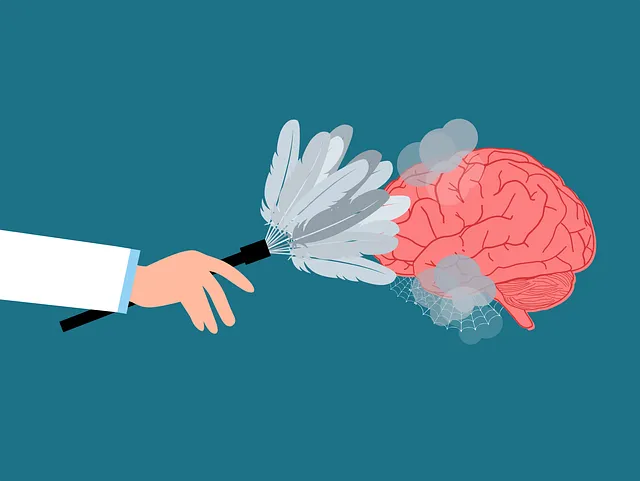Kaiser Permanente mental health locations in Boulder prioritize comprehensive risk management to create a secure environment for patients and staff. By identifying potential risks, such as high-stress environments and burnout, they implement strategies including emotional healing processes, self-care practices, and crisis intervention guidance. This approach combines proactive measures like staff training, clear protocols, and data analysis to foster resilience, enhance patient care, and maintain a supportive work environment for all professionals.
Mental health professionals face unique risks in their daily practice, from patient confidentiality breaches to violent encounters. This article explores risk management planning, a critical component of ensuring safe working environments at Kaiser Permanente mental health locations in Boulder. We’ll delve into specific risks prevalent in these settings, offer strategies for developing robust risk management plans, and discuss implementation and continuous improvement techniques to foster resilient and secure practices.
- Understanding Risk Management in Mental Health Settings
- Specific Risks at Kaiser Permanente Mental Health Locations Boulder
- Developing a Comprehensive Risk Management Plan
- Implementation and Continuous Improvement Strategies
Understanding Risk Management in Mental Health Settings

Risk Management planning is an indispensable aspect of mental health care, crucial for creating a safe and supportive environment at Kaiser Permanente mental health locations Boulder. It involves identifying potential risks and implementing strategies to mitigate them, ensuring patient well-being and clinical integrity. In this context, understanding risk management means proactively addressing various challenges unique to the mental health field, such as managing complex client populations with diverse needs, handling sensitive information, and responding effectively during crises.
At Kaiser Permanente mental health locations Boulder, effective risk management integrates Emotional Healing Processes, Self-Care Practices, and Crisis Intervention Guidance into daily operations. This involves establishing clear protocols for identifying and reporting risks, implementing security measures to protect clients and staff, and providing regular training on crisis intervention techniques. By adopting these practices, the organization fosters a culture of resilience, enabling professionals to navigate challenging situations while prioritizing client safety and well-being.
Specific Risks at Kaiser Permanente Mental Health Locations Boulder

At Kaiser Permanente mental health locations Boulder, professionals navigate a unique set of risks that demand tailored risk management strategies. One significant concern is the high-stress environment, where prolonged exposure to emotional distress can impact the well-being of both patients and providers. This is especially true given the increasing demand for mental health services and the subsequent workloads on staff. To mitigate this, Kaiser Permanente Boulder prioritises Emotional Well-being Promotion Techniques and incorporates them into their risk management plans. These techniques empower professionals to manage stress, fostering a healthier work environment.
Moreover, addressing specific risks like burnout and secondary traumatic stress is paramount. The nature of work in mental health often exposes professionals to intense emotional scenarios, which can lead to Trauma Support Services becoming a vital component of risk management. By integrating Mind Over Matter Principles, Kaiser Permanente Boulder encourages staff to develop resilience and coping mechanisms. This proactive approach ensures that the team is better equipped to handle challenging situations, ultimately enhancing patient care and professional satisfaction.
Developing a Comprehensive Risk Management Plan

At Kaiser Permanente mental health locations Boulder, developing a comprehensive risk management plan is paramount to ensuring the safety and well-being of both professionals and clients. This involves a multi-faceted approach that goes beyond simple crisis response protocols. It includes integrating Public Awareness Campaigns development and promoting Emotional Intelligence among staff through Self-Awareness Exercises. By fostering an environment where mental health professionals are equipped with advanced emotional resilience, they can more effectively manage their own stress levels and thereby provide consistent, quality care.
Comprehensive risk management plans at Kaiser Permanente Boulder also emphasize proactive measures. This includes regular training sessions on recognizing early signs of burnout or distress among team members, as well as establishing clear communication channels for reporting concerns. Additionally, these plans incorporate strategies for de-escalation and crisis intervention tailored to the unique needs of the mental health population served. Such proactive steps are crucial in maintaining a supportive and secure working environment.
Implementation and Continuous Improvement Strategies

At Kaiser Permanente mental health locations Boulder, continuous improvement is a cornerstone of their risk management strategy. Regular reviews and updates to protocols ensure that practices remain evidence-based and aligned with best practices in the field. This involves analyzing data from patient outcomes, staff feedback, and incident reports to identify areas for enhancement. For instance, implementing Crisis Intervention Guidance tailored to local needs can significantly improve response times during emergencies while fostering a culture of resilience among both patients and providers.
Additionally, promoting Self-Care Routine Development for Better Mental Health is integral to sustaining a healthy work environment. Encouraging professionals to prioritize their well-being through structured self-care practices can mitigate burnout and enhance overall mental health. This proactive approach, combined with ongoing training on Depression Prevention strategies, ensures that the team is equipped to not only manage risks but also to prevent them from escalating, ultimately benefiting both the practitioners and the patients they serve.
Risk management planning is an indispensable tool for Kaiser Permanente mental health locations Boulder to ensure patient safety and well-being. By understanding specific risks, developing comprehensive plans, and implementing effective strategies, these facilities can create a secure environment. Continuous improvement is key; regularly reviewing and updating risk management practices allows professionals to adapt to emerging challenges, ultimately fostering a healthier and more supportive mental health care setting.






